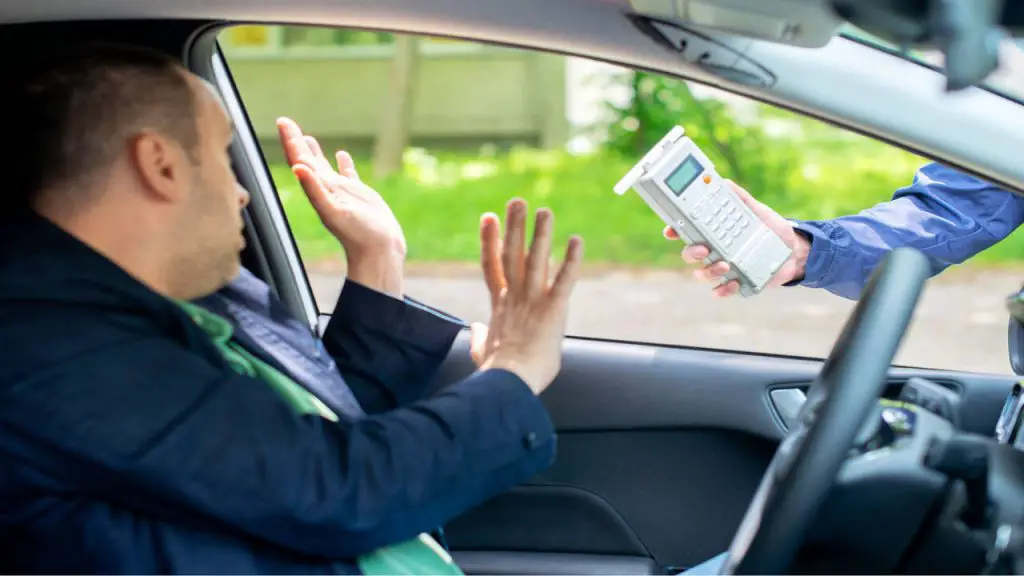Have you ever been pulled over for a suspected DUI in Illinois and refused to take a Breathalyzer test? Do you know the consequences of refusing a Breathalyzer in Illinois?
Driving under the influence is a serious offense in Illinois, and refusing to take a Breathalyzer test can lead to severe consequences. Many people are unaware of the legal repercussions of refusing a Breathalyzer test, which can result in long-term consequences.
If you’re arrested for DUI in Illinois, the law requires that you submit to a chemical test to determine your blood alcohol concentration (BAC).
Refusing to take a Breathalyzer test can result in immediate penalties and may also lead to additional charges. In this article, we will explore the consequences of refusing a Breathalyzer in Illinois and what you can do if you find yourself in this situation.
Introduction to the Breathalyzer Test and Illinois Law
The Breathalyzer test is a commonly used tool by law enforcement officials to determine a person’s blood alcohol content (BAC) level. In Illinois, it is illegal to drive with a BAC of 0.08 or higher.
The Breathalyzer test measures the amount of alcohol in a person’s breath and provides a numerical reading. If a person is found to have a BAC above the legal limit while operating a vehicle, they can face serious consequences such as fines, license suspension, and even jail time.
Illinois residents need to understand the laws surrounding the Breathalyzer test and the consequences of driving under the influence.
What Happens If You Refuse a Breathalyzer in Illinois?

1. License suspension
One of the most significant consequences of refusing a Breathalyzer test in Illinois is the immediate suspension of your driver’s license. Refusal to take the test will result in an automatic license suspension for one year for a first-time offense.
2. Increased penalties
If you are charged with a DUI and refused to take a Breathalyzer test, you may face increased penalties. The prosecution may use your refusal as evidence against you, which may result in a harsher sentence if convicted.
3. Mandatory jail time
In Illinois, refusing a Breathalyzer test could lead to mandatory jail time. If you are convicted of a DUI and refused the test, you may face a minimum of ten days in jail, even for a first-time offense.
4. Higher fines
In addition to mandatory jail time, refusing a Breathalyzer test may also result in higher fines. Illinois law allows for increased fines for drivers who refuse to take the test, even for a first-time offense.
5. Ignition interlock device
If you refuse a Breathalyzer test in Illinois, you may be required to install an ignition interlock device in your vehicle. This device requires you to blow into a Breathalyzer before starting your car, and it will prevent your car from starting if it detects any alcohol on your breath.
6. Criminal record
Refusing a Breathalyzer test in Illinois may result in a criminal record. If you are convicted of a DUI and refused the test, it will be noted on your criminal record, which could have long-term consequences for your employment and other opportunities.
7. Increased insurance rates
Finally, refusing a Breathalyzer test may also result in increased insurance rates. Insurance companies may view a refusal as an indication of guilt, which could lead to higher rates or even the cancellation of your policy.
Possible defense strategies for refusing a Breathalyzer test
Assert your right to remain silent
You have the right to remain silent and not incriminate yourself. You can politely decline to answer any questions or take any tests, including the Breathalyzer test.
Request to speak with an attorney
You have the right to an attorney, and you can request to speak with one before taking any tests. Your attorney can advise you on your legal rights and help you navigate the situation.
Challenge the legality of the stop
If the police officer did not have a valid reason to stop you, you may be able to challenge the legality of the stop. If the stop was illegal, any evidence gathered during the stop may be inadmissible in court.
Challenge the accuracy of the Breathalyzer test
Breathalyzer tests are not always accurate, and many factors can affect the results. You may be able to challenge the accuracy of the test by questioning the calibration of the device or the qualifications of the person administering the test.
Refuse politely and calmly
You have the right to refuse the Breathalyzer test, but it is important to do so politely and calmly. Refusing the test aggressively or confrontationally can escalate the situation and lead to further legal consequences.
Cooperate with other tests
If you refuse the Breathalyzer test, the police may ask you to perform other tests, such as a field sobriety test. While you have the right to refuse these tests as well, cooperating with them may help you avoid additional legal complications.
Be aware of the consequences
Refusing a Breathalyzer test can have legal consequences, such as a license suspension or even criminal charges. It is important to be aware of these consequences and weigh them carefully before making a decision.
Alternative chemical tests that can be used in place of a Breathalyzer
Blood tests
Blood tests are the most accurate alternative to a Breathalyzer test. They measure the amount of alcohol in the blood and can detect alcohol consumption up to 24 hours after drinking. A blood test is also able to determine the presence of other drugs in the system.
Urine tests
Urine tests are another alternative to the Breathalyzer test. They are less accurate than blood tests but can detect alcohol consumption up to 72 hours after drinking. Urine tests can also detect the presence of other drugs in the system.
Saliva tests
Saliva tests are becoming more popular as an alternative to the Breathalyzer test. They are non-invasive and can detect the presence of alcohol in the system within minutes of consumption. Saliva tests can also detect the presence of other drugs in the system.
Hair tests
Hair tests are a less common alternative to the Breathalyzer test, but they can detect alcohol consumption up to 90 days after drinking. They are more invasive than other tests and require a hair sample to be taken from the individual.
Field sobriety tests
Field sobriety tests are a series of physical tests that are used to determine if an individual is impaired.
These tests include walking in a straight line, standing on one leg, and following an object with the eyes. While they are not as accurate as other tests, they can indicate if an individual is impaired.
Portable alcohol breath tests
Portable alcohol breath tests are a less accurate alternative to the Breathalyzer test.
They are small handheld devices that measure the amount of alcohol on an individual’s breath. They are often used by law enforcement officers as a preliminary test.
PBTs (Preliminary Breath Tests)
PBTs are similar to portable alcohol breath tests, but they are slightly more accurate. They are often used by law enforcement officers as a preliminary test before administering a more accurate test, such as a blood or urine test.
Importance of consulting with a DUI attorney if facing charges for refusing a Breathalyzer
Understanding the consequences
Refusing a breathalyzer can have serious consequences, including the suspension of your driver’s license and potential criminal charges.
Consulting with a DUI attorney can help you better understand the potential consequences and how to navigate the legal process.
Protecting your rights
Refusing a breathalyzer is within your legal rights, but it can still lead to legal issues. A DUI attorney can help protect your rights throughout the legal process and ensure that any evidence against you was obtained legally.
Building a defense
If you are facing charges for refusing a breathalyzer, a DUI attorney can help build a strong defense on your behalf. They can gather evidence, interview witnesses, and work to mitigate the charges against you.
Negotiating plea deals
In some cases, a DUI attorney may be able to negotiate a plea deal on your behalf. This could potentially reduce the charges against you or provide a more favorable outcome in your case.
Court representation
If your case goes to trial, a DUI attorney can provide representation in court. They can argue on your behalf, cross-examine witnesses, and present evidence to support your case.
Knowledge of the legal system
DUI attorneys have a deep understanding of the legal system and how it works. They can navigate the complex legal process and guide how to proceed with your case.
Peace of mind
Facing charges for refusing a breathalyzer can be stressful and overwhelming. Consulting with a DUI attorney can provide peace of mind and help alleviate some of the anxiety associated with legal issues.
Conclusion
Refusing a Breathalyzer in Illinois can have serious consequences. If you refuse to take a Breathalyzer test when pulled over for suspicion of drunk driving, your driver’s license will automatically be suspended for one year. This is known as a statutory summary suspension.
Additionally, if you are later convicted of DUI, your refusal to take the Breathalyzer test can be used against you in court as evidence of guilt.
It is important to note that Illinois has an implied consent law, which means that by obtaining a driver’s license, you have already consented to chemical testing if pulled over for suspicion of DUI.
Refusing to take a Breathalyzer test can greatly harm your case and result in severe penalties.


